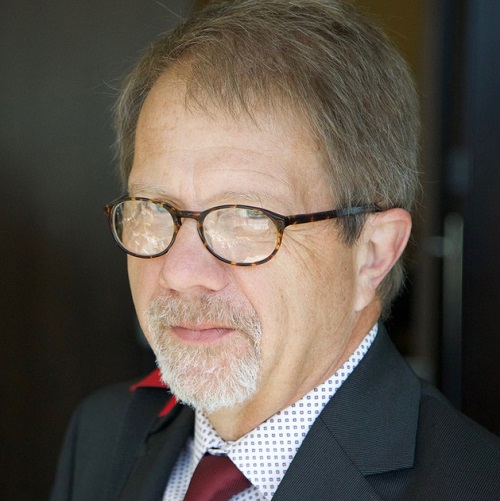Commentary on Psalm 1
Who are the wicked? Who are the righteous? Who are the blessed ones? How does one know the difference? Am I among those who would be called wicked? I have been called by many names over the course of my life. On occasion I have been called each of these.
It seems there is no shortage of those who are ready to label someone as wicked and slow to name someone as righteous (except perhaps those who think and act as they do). Maybe this has always been the case. However, our contemporary period seems to be more pointed and acidic than at any time in recent history, or at least since the 1950s and 1960s (Stephen Brookfield, co-authored with Mary Hess), claims:
“I wish I could claim to have a fully developed antiracist identity, but I don’t think that lies in my future … This is because the white supremacist ideology I’ve been brought up in is just too deeply embedded in me … I’ve assimilated a set of paradigmatic assumptions that have seemed to me to represent such commonsense reality that I’ve mostly regarded them as empirical truth rather than assumptions. Chief among these are the following: Leadership is white; Intelligence is white; Objectivity is white; Rationality is white; History is white; Geography is white.”1
I resonate with Brookfield’s comments and contend that undoing the wickedness of white supremacy is a lifelong process.
Discerning that which is wicked and that which is righteous is more complicated than it may appear at first glance. The Psalmist invites readers into complicated spaces of personal reflection to examine themselves and their own unexamined assumptions about what is right, good, true, and worth doing. Psalm 1 provokes an internal conversation about who we are and who we think we are? It invites readers and hearers into spaces of discomfort and personal recognition as related questions arise in the mind. Who are the wicked? Who are the righteous? Is this an either/or proposition? Can one be both wicked and righteous at the same time?
Questions abound when engaging Psalm 1. At first glance, it appears there is a clear separation between that which is wicked and that which is righteous. Those that are wicked are living a life that leads to destruction and those that are righteous are living lives that lead to blessed life lived under the watchful eye of God.
However, discerning who is wicked and who is righteous is no easy matter. Even if they are clearly aligning with one path or the other there seems to always be some type of commingling of motivations and desires. The Apostle Paul in Romans 7:15-16 echoes this conundrum when he states, “I do not understand what I do. For what I want to do I do not do, but what I hate I do. And if I do what I do not want to do, I agree that the law is good.” The one who meditates on the law day and night will potentially have a higher capacity for discerning what is right and good from that which is wrong and wicked. However, any span of living will also disclose to us that knowing and doing are not always in alignment with one another. Yet, knowing can aid us in choosing that which is right, good, and true. Sometimes we know what is wrong and we know that doing it will also be wrong.
Certain actions could be seen as wicked since they counter that which might be regarded as a fundamental truth or good. For example, children separated from parents at the southern U.S. border because of not entering the United States by legal means could be regarded as fundamentally wicked. The foundation of a family is rooted in the parent-child bond. To tear that asunder for political reasons without a plan or capacity for reuniting them could be countenanced as wicked. The family broke US law to enter the United States and the United States could be found guilty of transgressing a higher law (God’s law) when the government chose to separate and destroy families.
Perhaps the contemporary clash of ideas about what might be wicked and righteous stems from battles external and internal about these questions and other ideas that bump up against core convictions about what is right and wrong, good and evil, valuable and invaluable, and so on. Shifts in human understanding brought about by science and technology have resulted in countless revisions of what connotes human sexuality, human reproduction, the human genome, and even human flourishing. For some, questions about human sexuality are settled questions and for others the questions are highly unsettling.
The rise of relativism and related ideas about truth or the slippery nature of truth may be also responsible for a blurriness about what is wicked and what is righteous. Is the law of God relevant in all matters of human existence? The complexities of what we know through contemporary science and technology only complicate our meditation on the law. They don’t negate it. They invite deeper levels of reflection.
What was the world of the Psalmist like? What were the conditions in which they were writing and what were they trying to express to those who would listen? I think the answers lie beyond our capacity to know with certainty. However, I think we could suggest that the friction caused by the law of God itself and difficulties with adherence to that law within human experience have been present since it was first articulated and shared. The law of God might be seen as a stream of cool water that slakes the thirst on a hot day. It is that which brings freedom and flourishing. Wickedness promises these things too, but it cannot deliver that which brings contentment and joy. It might bring fleeting happiness, but not contentment and wellbeing.
The Psalmist recognizes the frailty and precariousness of life outside the law of God and invites singers and hearers into a world where delight is found not in material things, but in the law of the LORD. Meditation on God’s law during the day and night can bring about wellbeing and thriving even in places of scarcity and in places where easy answers to complicated questions are elusive. It brings about wellbeing not just for individuals, but in communities and webs of relationships.
In poetic imagery the writer evokes images of trees planted next to streams of water and whose roots always find nourishment to yield fruit. The water is like the law of God that becomes part of the tree itself and causes it to flourish. It becomes part of its very existence and without it the tree would potentially fail. Meditation on the law of God is regarded as something that gets inside of us like water and brings refreshment to the parched places. It can produce the conditions necessary for the bearing of fruit. Drinking from the stream from which the law of God flows can strengthen people so that they might discern that which is wicked and choose against it. The Psalmist is inviting people corporately and individually to live life in all its fullness by allowing the law of God to permeate them completely. It is a goal and we are invited to the journey toward that goal.
Notes
- Becoming a White Antiracist, Stephen Brookfield & Mary Hess (Sterling, VA: Stylus Publishing, 2021), 3-4.


February 13, 2022